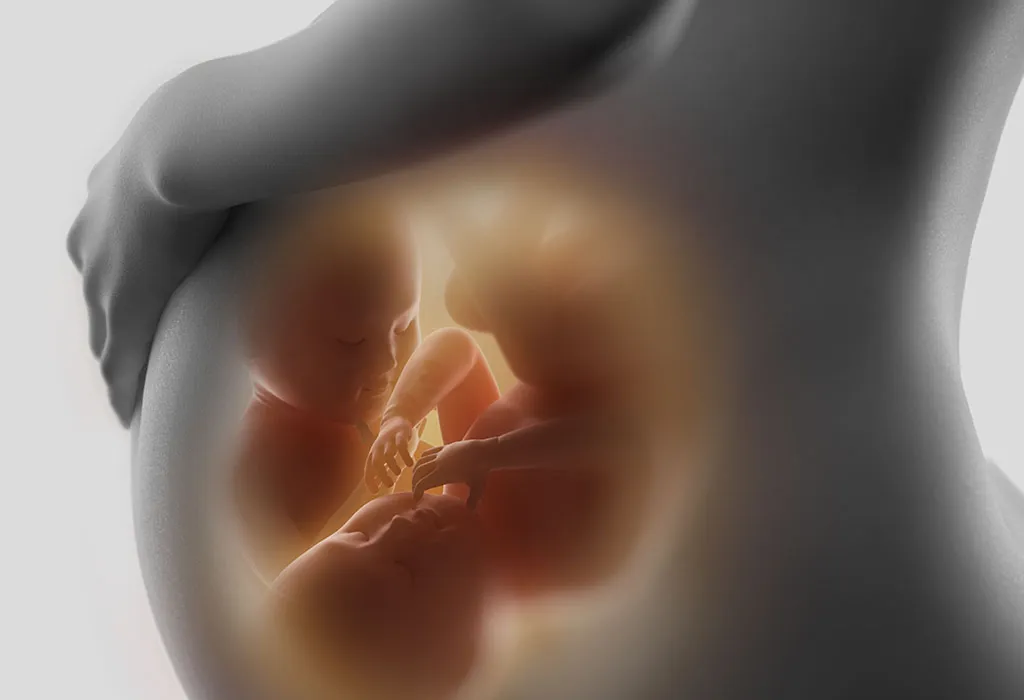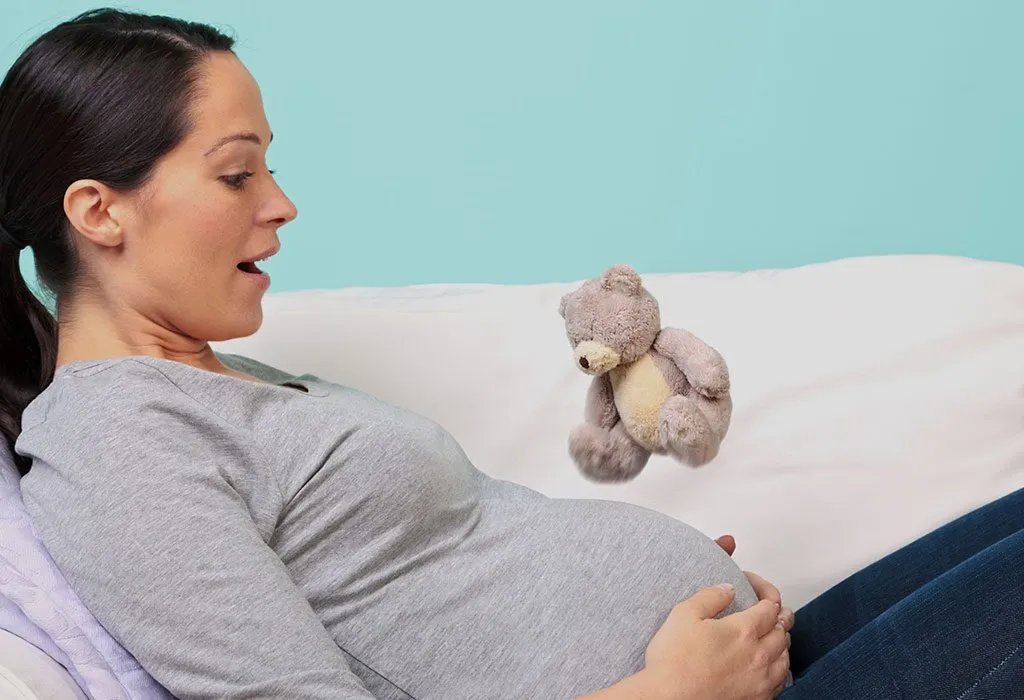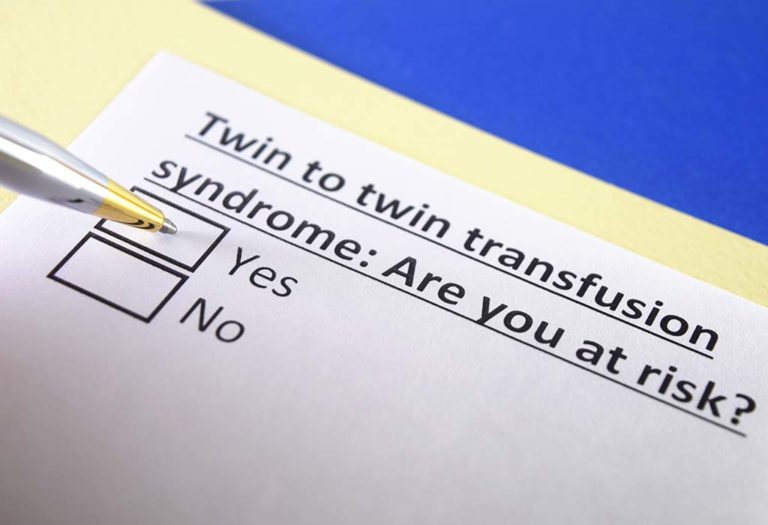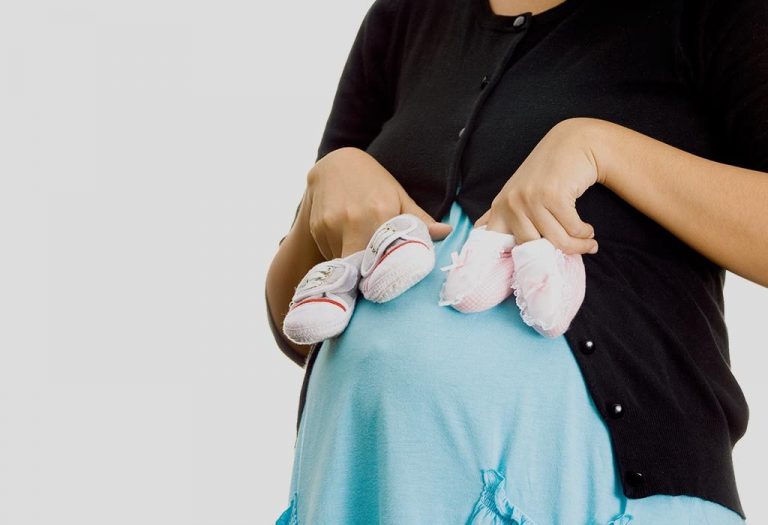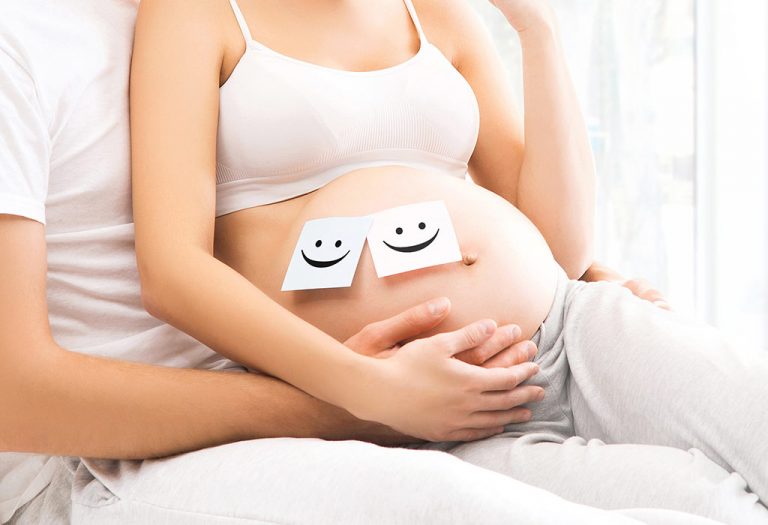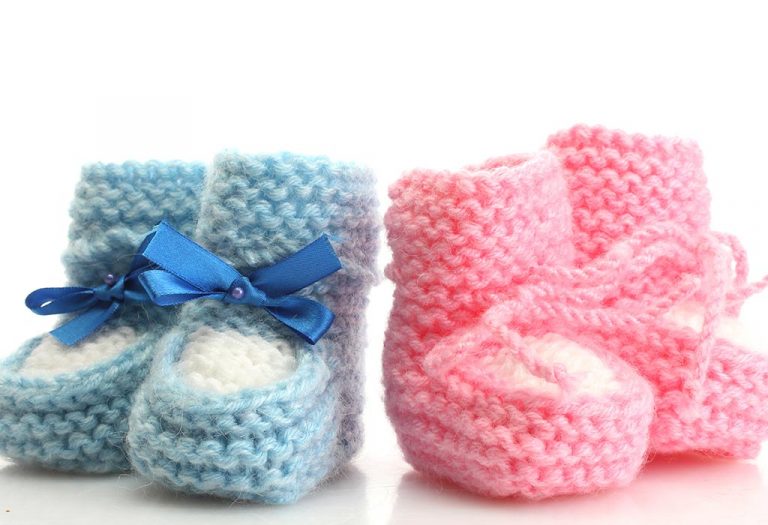Twin Fetal Movement – Feeling the Babies Move

When you find out that you are expecting twins, you are obviously happy but nervous, too. The thought of how the pregnancy will progress would make you anxious. But you will also look forward to experiencing your babies move inside the womb, which will usually happen around the 18th or the 20th week. Do you want to know what it feels like when your twins move inside your womb and how do twins move in the womb? Read this article to find out.
How Early Can You Feel Twins Moving Inside the Womb?
Early foetal movement or quickening in the case of a twin pregnancy can be felt between the 18th and the 20th week, which is the same average for a singleton pregnancy. In case this is not your first pregnancy or you have a lean body, then the flutterings are likely to be felt faster. Placenta positioning also plays a role in this. Front-facing (anterior-facing) placentas may inhibit the flutterings from being felt.
Before we move any further on this topic, let’s also find out what the difference between twin and singleton pregnancies is and also take a look at various other aspects of the movements of twin babies inside the womb.
The Difference in Movements Between Twin and Singleton Pregnancies
How do twins kick in the womb? Well, in the case of a twin pregnancy, babies quickly run out of space in the womb. You will also be able to detect individual kicks, elbow jabs, punches, or a pressing sensation in your abdomen as the babies move around in a limited space. Their movements can be sensed towards the end of the second trimester, but relatively early compared to a singleton pregnancy.
Is It Possible to Feel Twins Kick or Move Separately?
Early in the second trimester, some mothers can feel their twins kick or move separately, as there is space in the uterus. The chances for this increase are higher provided the babies are settled on different sides, or one is below the other. However, there is an equal possibility that mothers are not able to distinguish between their twins as they spend most of the time huddled together, with their limbs intertwined. As the pregnancy progresses, babies react to sound and touch which is another reason for babies’ movement during pregnancy (1).
How to Count Twins’ Kicks in the Womb?
Once you start sensing foetal movements or twins kicking in the womb, your gynaecologist will advise you to keep track of it. This phase is very exciting for an expectant mother as she can observe the baby’s general pattern of movement. Here’s how mothers can calculate the number of kicks:
- Observe the movements twice a day. It should be checked both in the morning and in the evening. Make a note of the time you feel the flutters, kicks, rolls, etc.
- You can stop counting when you reach 10 movements.
- If you observe that it takes an interval of more than an hour to reach 10 movements, go for a walk, munch a snack or drink some fruit juice and then count again.
- If you don’t feel any movements for two hours or more, get in touch with your doctor.
With twins, there is a space restriction compared to single babies, so it is even more important for the mother to note the pattern of the movements and a rough count of the fetal movement in twin pregnancy. Keep a tab of the movements, in between your daily activities such as meals, exercises, etc. If there is a deviation in the pattern of the babies’ movements in your womb, contact your gynaecologist immediately and get medical advice.
Should You Worry If the Twin Foetal Movement Stops?
Towards the later stages of pregnancy, you would reassure yourself by counting the fetal movements. However, there may be a period of lull when the babies go silent, which may happen because there is less room for their acrobatics. But, if you notice a marked decrease in the twin movement in the womb, you should see a doctor immediately.
The doctor will check if there is a discordant growth, which is a case when one baby outgrows the other or if the level of amniotic fluid is low (2). Discordant growth need not signal a problem and is quite common, but if there is a significant difference in the size of the twins, it might be a matter of concern. The condition is caused due to –
- Nutritional deficiency due to a problem with the umbilical cord or placenta
- Twin-to-twin transfusion syndrome (TTTS), which is a rare disorder which can be seen in monochorionic twins (3) (4) (5).
In a study it was found that pregnant women with twins with the case of reduced fetal movement can lead to more problems for the babies after they’re born. They might need extra care in the neonatal intensive care unit (NICU) and have more health issues compared to twins whose moms didn’t have this problem (6).
Therefore, taking medical advice is much required when you notice deviations in the movement of your twins or when they go silent inside the womb.
How to Make Sure the Twins Are Fine in the Womb?
When you are expecting twins, you will be anxious about the health of your babies. In case you have trouble feeling the movements of your babies, your healthcare provider will suggest numerous ways to ensure the safety of your twins.
Your doctor will have you scanned more often if you are pregnant with twins. The ultrasound may be used to assess foetal growth. Another common way of assessing foetal health is Non-Stress Test (NST) (7). It is a simple procedure in which the heart rate of the foetus is monitored to get an understanding of its health.
Once you reach the 16th week of your pregnancy, you will experience movements (flutterings) in your womb. These will be your babies’ first movements. It is known as ‘quickening‘. If you are primi, you may not feel the movements this early (primis can feel baby movements as early as 18-20 weeks in the case of those with twins). The early detection of foetal movements depends upon numerous things.
By week 24, your twins will look like newborns, and their sense of hearing will develop. The movements of the twins by week 24 may become one-sided at times, depending on the position of the babies, which could change often. If the movements are not felt for more than 2 hours or more, then you must see a doctor immediately.
FAQs
1. How should I assess anything wrong with my pregnancy?
To keep your little one safe and sound, make sure to complete all your routine check-ups with the doctor so they can assess your pregnancy and root out anything suspicious.
2. When do twin babies first move?
You may feel your babies move for the first time between 16 and 22 weeks of gestation. The experience is called quickening.
3. How often will twin babies move?
It is not possible to have a particular count of the ideal town movement during pregnancy, but doctors have come up with an estimation that could indicate a healthy twin movement in pregnancy. In the beginning, it is possible for twins to kick to once in a day or once in two days. As pregnancy progresses, the movement will increase. You may expect to experience noticeable kicks from 20 weeks of gestation. It is believed that babies move about 30 times in an hour in the second trimester.
Pregnancy is one of the most wonderful experiences in a woman’s life. In the case of a twin pregnancy, it is normal for a woman to get worried, but you must not let those fears impact your health. If you face any problem, consult a doctor, and you can have a healthy pregnancy.
References/Resources:
1. Marx. V, Nagy. E; Fetal Behavioural Responses to Maternal Voice and Touch; PLoS One.; PubMed Central; https://www.ncbi.nlm.nih.gov/pmc/articles/PMC4460088/; June 2015
2. Horsager-Boehrer. R; Feeling your baby move during pregnancy; UTSourthwestern Medical Center; https://utswmed.org/medblog/fetal-movements/; April 2015
3. Twin-Twin Transfusion Syndrome; NORD; https://rarediseases.org/rare-diseases/twin-twin-transfusion-syndrome/; 1995
4. Multiple Pregnancy; ACOG; https://www.acog.org/womens-health/faqs/Multiple-Pregnancy?utm_source=redirect&utm_medium=web&utm_campaign=int
5. Twin pregnancy: What twins or multiples mean for mom; Mayo Clinic; https://www.mayoclinic.org/healthy-lifestyle/pregnancy-week-by-week/in-depth/twin-pregnancy/art-20048161
6. Levy. M, Kovo. M, et al.; Reduced fetal movements is twin pregnancies and the association with adverse neonatal outcomes; Eur J Obstet Gynecol Reprod Biol.; PubMed; https://pubmed.ncbi.nlm.nih.gov/32032929/; March 2020
7. Special Tests for Monitoring Fetal Well-Being; ACOG; https://www.acog.org/womens-health/faqs/Special-Tests-for-Monitoring-Fetal-Well-Being?utm_source=redirect&utm_medium=web&utm_campaign=int
Also Read:
Mirror Twins
Interesting Facts About Twins
Twin Pregnancy Types – Fraternal & Identical
How to Take Care of Health during Twin Pregnancy?
Was This Article Helpful?
Parenting is a huge responsibility, for you as a caregiver, but also for us as a parenting content platform. We understand that and take our responsibility of creating credible content seriously. FirstCry Parenting articles are written and published only after extensive research using factually sound references to deliver quality content that is accurate, validated by experts, and completely reliable. To understand how we go about creating content that is credible, read our editorial policy here.







